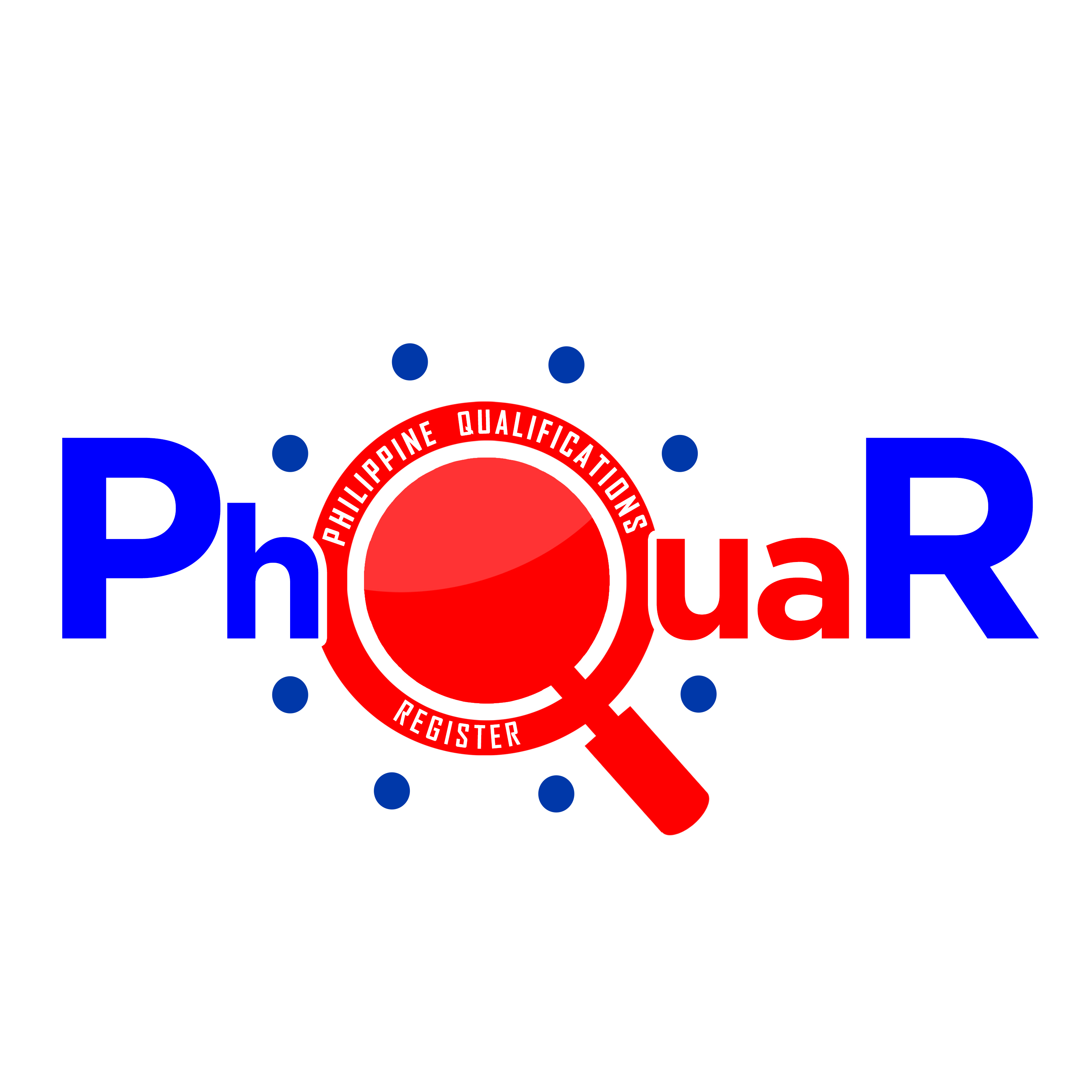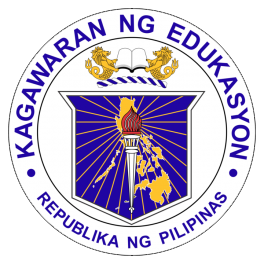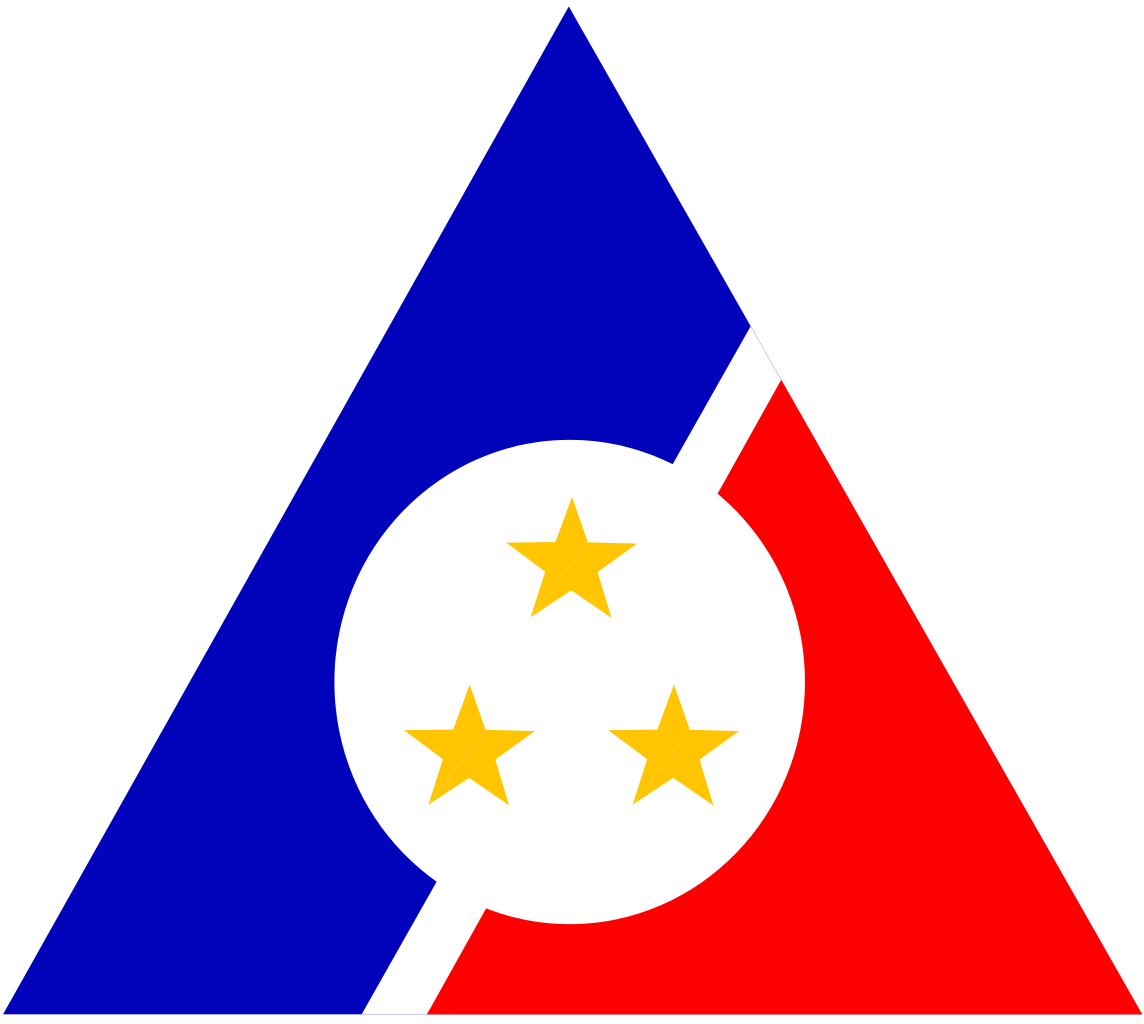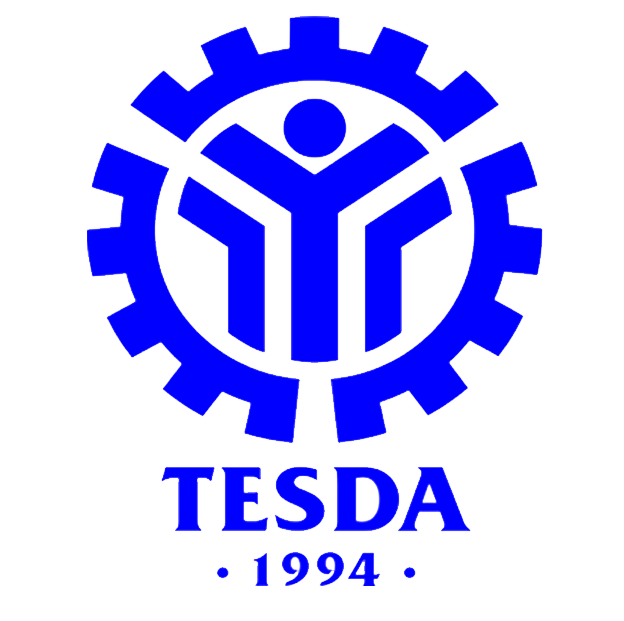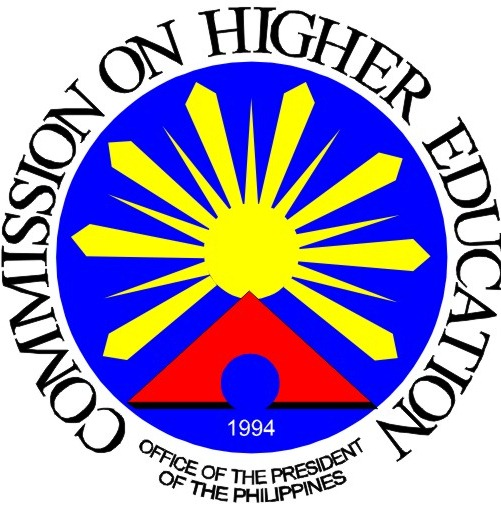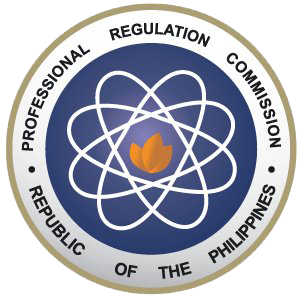Register of Qualifications
Search Qualifications
| Qualification Code | Qualifications | Descriptor | Level | Authority Granting Agency |
Instrument (PSG/CMO/Board Resolution) |
Date of Authorization |
|---|---|---|---|---|---|---|
| 60114 | Bachelor of Technology and Livelihood Education | The BACHELOR OF TECHNOLOGY AND LIVELIHOOD EDUCATION is an undergraduate teacher education program that equips learners with adequate and relevant competencies in the area of Technology and Livelihood Education, particularly for the TLE exploratory courses from Grades 4-8 Graduates of the program should be able to: 1) Demonstrate the competencies required of the Philippine TVET Trainers-Assessors Qualifications Framework (PTTQF). 2) Demonstrate broad and coherent, meaningful knowledge and skills in technology and livelihood education. 3) Apply with minimal supervision specialized knowledge and skills in technology and livelihood education. 4) Demonstrate higher level literacy, communication, numeracy, critical thinking, learning skills needed for higher learning. 5) Manifest a deep and principled understanding of the learning processes and the role of the teacher in facilitating these processes in their students. 6) Show a deep and principled understanding of how educational processes relate to larger historical, social, cultural, and political processes. 7) Apply a wide range of teaching process skills (including curriculum development, lesson planning, materials development, educational assessment, and teaching approaches. 8) Reflect on the relationships among the teaching process skills, the learning processing in the students, the nature of the content/subject matter, and other factors affecting educational processes in order to constantly improve their teaching knowledge, skills and practices. 9) Articulate the rootedness of education in philosophical, socio-cultural, historical, psychological, and political contexts. 10) Demonstrate mastery of subject matter/discipline. 11) Facilitate learning using a wide range of teaching methodologies and delivery modes appropriate to specific learners and their environments. 12) Develop innovative curricula, instructional plans, teaching approaches, and resources for diverse learners. 13) Apply skills in the development and utilization of ICT to promote quality, relevant, and sustainable educational practices. 14) Demonstrate a variety of thinking skills in planning, monitoring, assessing, and reporting learning processes and outcomes. 15) Practice professional and ethical teaching standards sensitive to the local, national, and global realities. | VI | CHED | CMO No. 78, s. 2017 | 11/2/2017 - Present |
| 60114 | Bachelor of Technical-Vocational Teacher Education | The BACHELOR OF TECHNICAL-VOCATIONAL TEACHER EDUCATION is an undergraduate teacher education program that equips learners with adequate and relevant competencies in teaching specific area in Industrial Arts or Home Economics or ICT or Agri-Fishery Arts – the four areas of technical and vocational track in the K to 12 Curriculum. Graduates of the program should be able to: 1) Demonstrate the competencies required of the Philippine TVET Trainers-Assessors Qualifications Framework (PTTQF). 2) Demonstrate broad and coherent, meaningful knowledge and skills in technology and livelihood education. 3) Apply with minimal supervision specialized knowledge and skills in technology and livelihood education. 4) Demonstrate higher level literacy, communication, numeracy, critical thinking, learning skills needed for higher learning. 5) Manifest a deep and principled understanding of the learning processes and the role of the teacher in facilitating these processes in their students. 6) Show a deep and principled understanding of how educational processes relate to larger historical, social, cultural, and political processes. 7) Apply a wide range of teaching process skills (including curriculum development, lesson planning, materials development, educational assessment, and teaching approaches). 8) Reflect on the relationships among the teaching process skills, the learning processing in the students, the nature of the content/subject matter, and other factors affecting educational processes in order to constantly improve their teaching knowledge, skills and practices. 9) Articulate the rootedness of education in philosophical, socio-cultural, historical, psychological, and political contexts. 10) Demonstrate mastery of subject matter/discipline. 11) Facilitate learning using a wide range of teaching methodologies and delivery modes appropriate to specific learners and their environments. 12) Develop innovative curricula, instructional plans, teaching approaches, and resources for diverse learners. 13) Apply skills in the development and utilization of ICT to promote quality, relevant, and sustainable educational practices. 14) Demonstrate a variety of thinking skills in planning, monitoring, assessing, and reporting learning processes and outcomes. 15) Practice professional and ethical teaching standards sensitive to the local, national, and global realities. 16) Pursue lifelong learning for personal and professional growth through varied experiential and field- based opportunities. | VI | CHED | CMO No. 79, s. 2017 | 11/2/2017 - Present |
| 60114 | Bachelor of Physical Education | PHYSICAL EDUCATION as a teaching profession, is a seamless activity of designing and delivering learning activities, providing quality instruction, managing the classroom and assessing student learning, modeling as well as mentoring. As a curricular subject, PE is aimed at physical literacy, which serves as the foundation for confident, enjoyable and sustained participation in a wide range of physical activities. The BACHELOR OF PHYSICAL EDUCATION program aims to equip graduates with the competencies to meet the psychomotor, cognitive and affective needs of learners. Graduates of the program should be able to: Disciplinal Knowledge: 1) Apply scientific and evidence-based practices critical to the educational and learning processes. Movement and Competency and Proficiency: 2) Demonstrate skillful performance in a variety of physical activities. 3) Adapt performance to variety of physical activity settings: (e.g. formal classes, recreational, and competitive) Curriculum and Program Planning, Implementation, Monitoring and Evaluation: 4) Critically examine the curriculum (e.g. content, pedagogy and assessments) and program, and enhance (e.g. innovate) them necessarily. 5) Plan and implement safe and effective physical activity programs to address the needs of individual and groups in school and/or non-school settings. 6) Monitor and evaluate physical activity programs in school and/or non-school settings. 7) Use appropriate assessments in, as and for student or client learning. 8) Use information, media and technology in pedagogy and for lifelong learning. Professional Accountability and Responsibility: 9) Demonstrate firm work/professional ethics. 10) Cultivate solidarity by working and dealing with/relating to others harmoniously. 11) Promote the advancement of the profession by making sense of and getting involved in current discourse that impact on the profession. 12) Pursue lifelong learning for personal and professional development. Communication: 13) Communicate effectively with PE practitioners, other professionals and stakeholders. 14) Use oral, written, and technology formats deftly. 15) Articulate the rootedness of education in philosophical, socio-cultural, historical, psychological, and political contexts. 16) Demonstrate mastery of subject matter/discipline. 17) Facilitate learning using a wide range of teaching methodologies and delivery modes appropriate to specific learners and their environments. 18) Develop innovative curricula, instructional plans, teaching approaches, and resources for diverse learners. 19) Apply skills in the development and utilization of ICT to promote quality, relevant, and sustainable educational practices. 20) Demonstrate a variety of thinking skills in planning, monitoring, assessing, and reporting learning processes and outcomes. 21) Practice professional and ethical teaching standards sensitive to the local, national, and global realities. 22) Pursue lifelong learning for personal and professional growth through varied experiential and field-based opportunities. | VI | CHED | CMO No. 80, s. 2017 | 11/2/2017 - Present |
| 60114 | Bachelor of Science in Exercise and Sports Sciences | The BACHELOR OF SCIENCE IN EXERCISE AND SPORTS SCIENCES is an interdisciplinary field designed to provide graduates with a broad and coherent understanding of applied exercise and sports sciences in terms of fitness and sports coaching, and the management of fitness and sports programs in various industry settings. Graduates of the program should be able to: 1) Communicate effectively the foundations of applied exercise and sports sciences to stakeholders, other professionals and practitioners. 2) Exhibit professional integrity by adhering to ethical behaviors and discerning boundaries of competence. 3) Organize, administer and evaluate fitness, sports and recreational programs and activities. 4) Employ evidence-based interventions in fitness, sports and recreation. In addition, graduates of the program with the following Majors should be able to: A) Fitness and Sports Coaching 1) Disciplinal Knowledge: Create and adapt appropriate programs and interventions in exercise, sports and recreation. 2) Professional Competence: Apply concepts, processes and theories in the organization, administration and evaluation of evidence-based interventions in fitness, sports performance and wellness. 3) Professional Accountability and Responsibility: Promote the advancement of the profession through research, lifelong learning, adherence to work and professional ethics, and advocacy pursuits. 4) Communication: Communicate effectively through oral, written, and technological format with stakeholders, allied professionals, and various practitioners. B) Fitness and Sports Management 1) Disciplinal Knowledge: Create and adapt appropriate programs and interventions in exercise, sports and recreation. 2) Professional Competence: Apply concepts, processes and theories on the management of resources and operations to exercise, sports, and recreational programs and facilities. This includes demonstrating management capabilities and techniques in different contexts: managing oneself, managing organizational life, and managing others. 3) Professional Accountability and Responsibility: Promote the advancement of the profession through research, lifelong learning, adherence to work and professional ethics, and advocacy pursuits.4) Communication: Communicate effectively through oral, written, and technological format with stakeholders, allied professionals, and various practitioners. | VI | CHED | CMO No. 81, s. 2017 | 11/2/2017 - Present |
| 60114 | Bachelor of Culture and Arts Education | CULTURE AND ARTS EDUCATION is a field of specialization engaged (i) in clarifying the conceptual foundations of value-laden creative expressions such as visual arts, music, drama, and dance, (ii) in defining its relations to other disciplines of thought and action that address the fundamental question of what it means to creatively express the condition of being human in changing life-worlds, (iii) in analyzing the conditions and possibilities for crafting and asserting creative expressions of being human in diverse contexts, and (iv) in developing programs responsive to local and global contexts of production, circulation, and consumption of creative expressions. The BACHELOR OF CULTURE AND ARTS EDUCATION program aims to develop highly motivated, creative, and reflexive teachers in basic education equipped with knowledge, skills and values in culture and arts education. Graduates of the program should be able to: 1) Disciplinal Knowledge: Apply evidence-based practices derived from the social sciences and humanities in teaching and learning. 2) Pedagogical Practice: Apply multidisciplinary knowledge and skills in culture, arts and design in the teaching-learning practice anchored on the meanings and values of human creativity in a changing life-worlds. 3) Competency and Proficiency in the Creative Expressions: Demonstrate competence in the planning and development of market and non-market oriented visual arts, music, drama and dance productions in local, regional and global settings. 4) Professional Accountability and Responsibility: Practice professional and ethical standards for teachers as well as principles and guidelines governing arts production, research and publication. 5) Research and Extension: Conduct applied research in culture and the arts which will benefit local communities. 6) Articulate the rootedness of education in philosophical, socio-cultural, historical, psychological, and political contexts. 7) Demonstrate mastery of subject matter/discipline. 8) Facilitate learning using a wide range of teaching methodologies and delivery modes appropriate to specific learners and their environments. 9) Develop innovative curricula, instructional plans, teaching approaches, and resources for diverse learners. 10) Apply skills in the development and utilization of ICT to promote quality, relevant, and sustainable educational practices. 11) Demonstrate a variety of thinking skills in planning, monitoring, assessing, and reporting learning processes and outcomes. 12) Practice professional and ethical teaching standards sensitive to the local, national, and global realities. 13) Pursue lifelong learning for personal and professional growth through varied experiential and field-based opportunities. | VI | CHED | CMO No. 82, s. 2017 | 11/2/2017 - Present |
| Post Baccalaureate Diloma in Alternative Learning System | The POST-BACCALAUREATE DIPLOMA IN ALTERNATIVE LEARNING SYSTEM program is a 30-unit post-baccalaureate program with the primary goal of providing the appropriate tertiary education program that can respond to the need for competent and committed alternative learning system practitioners. Graduates of the program should be able to: 1) Serve as an advocate in the pursuit of “learning” rather than “schooling”. 2) Create and maintain a learning environment that: a. promotes recognition of prior learning as well as respect for learners of different ages and backgrounds b. provides gender-fair opportunities as well as interest-based learning experiences c. censures timely feedback and authentic evaluation of learning to reinforce appropriate learner’s behavior. 3) Demonstrate an understanding that the unique nature of ALS and its clients requires appropriate teaching methodology both pedagogy and andragogy using: a. the lifeskills approach b. program interventions offered in different modalities, and learning environments tools and technology to address the goal of functional Literacy. c. realize that learners’ assessment is focused on practical application of the knowledge and skills acquired in the context of lifelong learning. 4) Appreciate that learning can take place in a community learning center (CLC) that is collaboratively established by the members of the community to serve the different learning needs of the community. 5) Identify and conduct oneself as a professional, as guided by the ethics and standards of teaching profession, and able to make informed decisions for one’s growth and development. | VII | CHED | CMO No. 83, s. 2017 | 11/2/2017 - Present | |
| PACC60411 | ACCOUNTANCY | The practice of Accountancy constitutes Public Practice involving the attest and assurance function on audit reports; Practice in Commerce and Industry involving compilation and other related services in the preparation of financial statements; Government Practice involving proprietory functions in accounting and auditing of transactions; and, practice in the Education/Academe involving teaching Accounting, Taxation, Auditing, Business Law and Management Advisory Services subjects. | VI | Professional Regulation Commission | R.A. 9298 TOS Res. No. 114 Series 2016 | May 13, 2004 April 27, 2017 |
| PAER60716 | AERONAUTICAL ENGINEERING | The practice of Aeronautical Engineering constitutes planning, designing, analyzing, constructing, assembling, installing, altering or maintaining of aircraft structures, power plants or accessories through scientific or accepted engineering practice, or the teaching of the same in any university, college, institute, or school of learning duly recognized by the Government of the Philippines. | VI | Professional Regulation Commission | P.D. 1570 TOS Res. No. 01 Series 2010 | June 11, 1978 May 26, 2010 |
| PAGE60719 | AGRICULTURAL AND BIOSYSTEMS ENGINEERING | The practice of Agricultural and Biosystems Engineering constitutes preparing of engineering designs, plans, specifications, project studies, feasibility studies and estimates, supervision or management on the construction, operation, and maintenance of of irrigation and drainage, soil and water conservation and management systems and facilities, agrometeorological systems, agricultural and biosystems power, and machinery, agricultural and biosystems buildings and structures, renewable/bio-energy systems and farm electrification, agricultural and bio-processing and post harvest facilities and system, agricultural and biological waste utilization and management, agricultural and bio-information system, agricultural and biosystems resource conservation and management, and agricultural and bio-automation and instrumentation system; Valuation, appraisal, investigation, inspection, monitoring, technical audit, testing and evaluation, manufacture, distribution, installation, and sale on agricultural and biosystems machineries and equipment, structures and facilities, and agricultural and biosystems engineering projects; Conduct of research and development, training and extension, teaching, planning and development, and consultancy service on agricultural and biosystems engineering; and Preparation and evaluation of farm development plans, farm suitability maps and land use maps/reports for agricultural, livestock and poultry, fishery, aquaculture and forest production and processing. | VI | Professional Regulation Commission | R.A. 10915 TOS Res. No. 05 Series 2010 | July 21, 2016 August 8, 2010 |
| PARC60731 | ARCHITECTURE | The practice of Architecture constitutes Architecture designing and planning, construction, construction and project management. | VI | Professional Regulation Commission | R.A. 545 as amended by R.A. 9266 TOS Res. No. 05 Series 2011 | June 17, 1950 March 17, 2004 January 18, 2012 |
| PCHE60711 | CHEMICAL ENGINEERING | The practice of Chemical Engineering constitutes the study, conceptualization, design, development, improvement and application of safe, healthy, ethical and economics ways in the utilization of materials and energy in unit operations and unit processes through the knowledge of mathematics, chemistry, biology, information technology and other natural, applied and social sciences gained by study, research and experience for the benefit of the society and environment. | VI | Professional Regulation Commission | R.A. 318 as amended by R.A. 9297 TOS Res. No. 01 Series 2012 | June 19, 1948 May 13, 2004 April 13, 2012 |
| TCHM40531 | CHEMICAL TECHNICIAN | The scope of professional practice of a chemical technician is limited to the following activities, performed under the supervision of a registered chemist : routine physico-chemical or biochemical analysis, chemical or biochemical synthesis, management and storage of chemicals and chemical waste, and sale of chemicals, chemical equipment / apparatus. | IV | Professional Regulation Commission | RA No. 10657 TOS Res. No. 04 Series 2017 | March 27, 2015 June 6, 2017 |
| PCHM60531 | CHEMISTRY | The practice of Chemistry involves the performance, supervision and certification of chemical analysis or chemical synthesis in a laboratory; inspection, supervision and certification of a laboratory with respect to its chemical or biochemical activities; teaching, lecturing and reviewing of professional Chemistry subjects; and undertaking of functions related to the management of chemicals, and chemical equipment such as sales, chemical safety, chemical waste management, and pollution control among others. | VI | Professional Regulation Commission | R.A. 754 as amended by R.A. 10657 TOS Res. No. 04 Series 2017 | June 18, 1952 March 27, 2015 June 6, 2017 |
| POCE60732 | CIVIL ENGINEERING | The practice of Civil Engineering shall embrace services in the form of consultation, design, preparation of plans, specifications, quantity surveying, erection, installation and supervision of the construction of streets, bridges, highways, railroads, airports and hangars, port works, canals, river and shore improvements, lighthouses, and dry docks, buildings, fixed structures for irrigation, flood protection, drainage, water supply and sewerage works, tunnels, demolition and retrofitting of permanent structures. | VI | Professional Regulation Commission | R.A. 544 as amended by R.A. 1582 TOS Res. No. 12 (s. 2012) Updated TOS Res No. 1 (s. 2022) | June 17, 1950 June 16, 1956 May 2013 March 29, 2022 |
| PCRM60421 | CRIMINOLOGY | The practice of Criminology constitutes the application of the arts and scientific study about crimes, criminals, and victims in the field of national security, public safety, peace and order, administration of criminal justice, forensics and criminalistics, in dealing with the prevention and solution to crimes, and in the conduct of criminological researches in the aforesaid fields of endeavors. | VI | Professional Regulation Commission | R.A. 6505 as amended by R.A. 11131 TOS Res. No. 1 (s. 2017) TOS Res. No. 5 (s. 2022) Updated TOS Res. No. 2 (s. 2024) | July 1, 1972 December 1, 2018 April 7, 2017 May 14, 2022 May 5, 2024 |
Page 48 of 102
